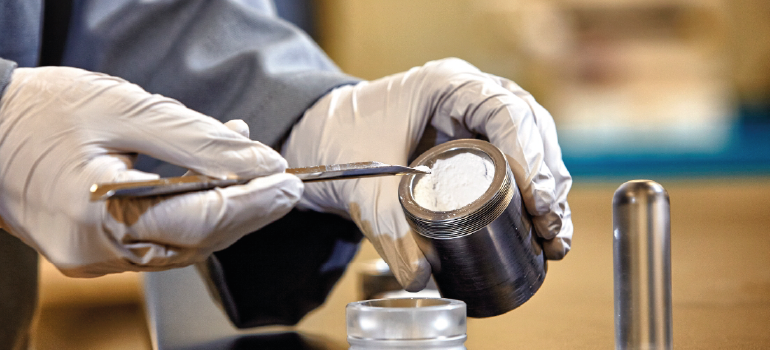
Acidizing Stimulation
Acidizing stimulation has been around for over 100 years and predates other stimulation treatments. Acidizing stimulation is used to improve well productivity but does require specialty chemicals that are compatible with the low pH system. Acid corrosion inhibitors are required to maintain the integrity of the metal in the system during acidizing stimulation. Paragroup chemicals continues to formulate and manufacture chemicals to use in acidizing stimulation and maximize production.
Paragroup offers new formulations that deliver exceptional control in acid stimulation where the low pH environments can impact metal equipment integrity and lifetime.
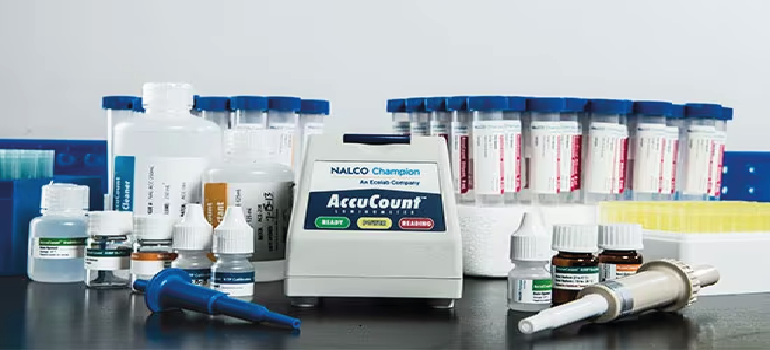
Biocides
Microbial contamination of fuel can result in filter blockages, haze issues, H2S formation, fuel degradation, sludge formation and under-deposit corrosion. Paragroup offers a full line of hydrocarbon- and water-based biocides to kill microbes or inhibit microbial growth. We also offer test methodology and best-in-class application practices to maximize the success of your microbial control program and minimize negative impacts on fuel quality.
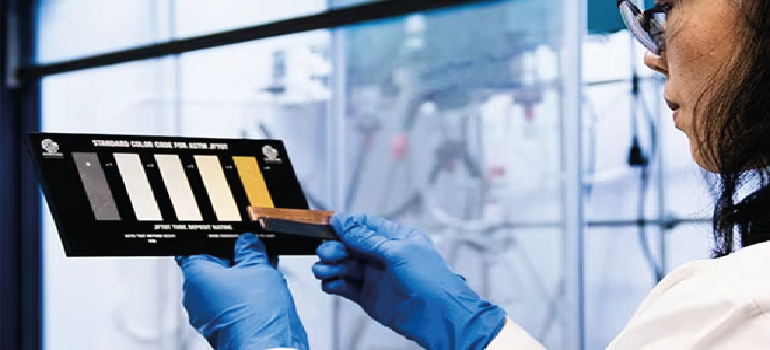
Corrosion Inhibitors
Copper Corrosion Inhibitors
To protect fuel system and engine components, petroleum products such as gasoline, diesel, jet fuel and LPG are required to be non-corrosive towards copper. Copper is especially susceptible to attack by sulfur compounds such as H2S and elemental sulfur. When finished products fail copper corrosion specifications, copper corrosion inhibitors can quickly remediate failing batches. Paragroup additives passivate the copper surface and protect the metal from corrosive species.
Ethanol Corrosion Inhibitors
Fuel ethanol corrosivity worsens if the pH range of the ethanol (pHe) is out of specification, potentially leading to fuel pump damage and seal failures. Paragroup corrosion inhibitors designed for ethanol have dual functions of protecting ferrous metals and providing pHe buffering to help it remain in specification.
Ferrous Corrosion Inhibitors
Ferrous metals are susceptible to corrosion in the presence of air and water, a process that is accelerated by the presence of H2S, sulfides, and other contaminants. In order to protect the integrity of storage tanks and pipelines, most petroleum products are required to be non-corrosive to ferrous metals. Paragroup ferrous corrosion inhibitors are used to accomplish this, by forming a durable film at the surface of the metal to protect it from attack by corrosive species.
Silver Corrosion Inhibitors
Gasoline containing certain contaminants, especially elemental sulfur, hydrogen sulfide, and some mercaptans, is corrosive toward silver engine components in some automotive systems. Remediation of gasoline that fails the silver corrosion specification requires reprocessing or the use of a silver corrosion inhibitor. Our additive interacts with the metal surface to form a film that protects silver from attack by corrosive contaminants in the fuel.

Flow Assurance
Flow assurance is the maintained produced fluid flow from well to processing facilities. Flow assurance issues often arise due to solids deposition problems in the wellbore, including scale and paraffin deposition. Dispersants and inhibitors chemistries are used to keep production fluid flowing and prevent deposition. Paragroup chemicals offers a full suite of chemistries to make sure wells keep flowing into production, protected, and with decreased required intervention. This includes products such as scale inhibitors and pour point depressants to protect the well integrity through production.

H2S Scavenging
H2S Scavenging for Asphalt Bitumen
With an increasing focus on refinery employee safety and community stewardship, high H2S levels in asphalt are a concern to refiners and terminal operators. Challenges such as high temperatures have limited the chemistry selection for effective chemical scavenging. The Paragroup patented use of organometallic scavengers has allowed our partners to successfully manage H2S levels in asphalt applications over the past two decades.
H2S Scavenger for Crude Oils
H2S can cause safety and environmental hazards during crude tanker loading and discharge or through seal leaks on crude oil storage tanks. Paragroup provides a wide range of scavengers that react irreversibly with H2S plus the expertise to help you select a scavenger that will not cause issues with downstream operations. Let us help you mitigate H2S so you can continue to operate safely and with maximum profitability.
H2S Scavenging for Finished Fuels
When contaminated with H2S, gasoline and diesel can fail the copper or silver corrosion test, have an objectionable odor and pose a safety hazard when shipped. In response to these challenges, Paragroup developed several EPA-registered H2S scavengers. Our additives react non-reversibly with H2S to allow fuel to pass copper and silver corrosion specifications, and remove offensive sulfur-related odors. Safety, efficiency and effectiveness are key to all of our formulations.
H2S Scavenging for Heavy Oils
Paragroup offers a wide range of H2S scavengers, including triazine-based H2S scavengers, heavy amine and non-amine scavengers. Our complete product line offers us the flexibility to design an H2S abatement program that will safely and effectively reduce H2S without causing issues in downstream equipment.
H2S Scavenging for LPG
Paragroup H2S scavengers help protect vulnerable copper components in fuel handling systems from attack by H2S found in LPG.

Lubricity Improvers
Severe hydrotreating is required to produce diesel with lower sulfur content that burns cleaner with lower emissions, however the process also removes naturally occurring lubricating components in the fuel. A diesel fuel with no lubricating properties leads to wear and tear of critical engine components and possible vehicle failure. Paragroup offers both acidic and non-acid lubricity improvers to meet industry requirements for use in ultra-low sulfur diesel.
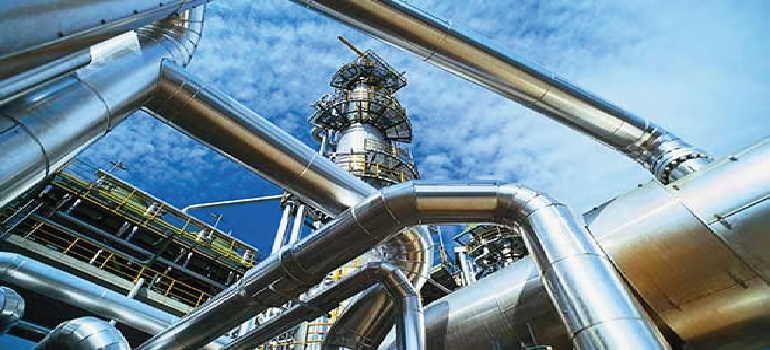
Mercaptan Scavening
Mercaptans are a common contaminant of crude oils and finished products like gasoline and diesel. These molecules cause odor issues, can increase corrosivity, contribute to instability and make it difficult to meet finished product specifications. Paragroup mercaptan scavengers mitigate the negative impact of mercaptans on crude and finished product properties.
Mercaptans, or thiols, are sulfur compounds found in many hydrocarbon streams, including crude oils and refined products. While mercaptans are less reactive and less toxic than chemically similar hydrogen sulfide, mercaptans can still cause a host of issues for refiners and tank farm operators. Mercaptan odors from contaminated products in storage, or during transport, may result in odor complaints and environmental concerns from nearby residents. Mercaptans, especially those of low molecular weight, can also be corrosive to storage tanks and distribution systems. Contact your Paragroup sales rep to explore solutions to mercaptan contamination issues in a variety of hydrocarbon products.
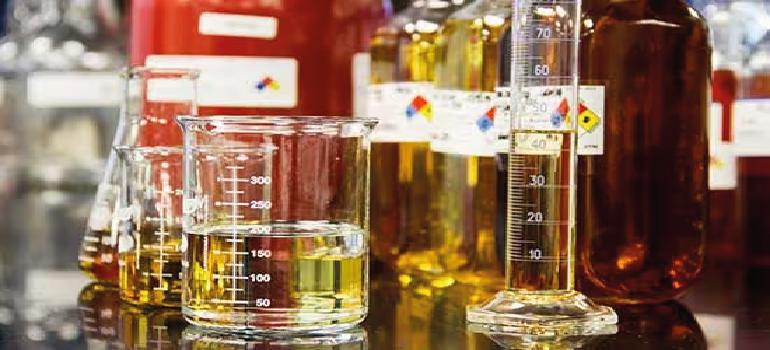
More Fuel Quality Solutions
Our mission is to keep you operating in compliance and with maximum profitability. We have a variety of solutions for nearly every fuel or product quality issue refiners or terminal operators might face. These solutions can help you quickly and effectively bring off-grade tanks and cargoes back on specification, upgrade intermediate streams, and improve the profitability of your finished blends.
- Fuel Dehazers
- Dewaxing Aids
- Diesel fuel stabilizer
- Fuel antioxidants
- Cetane Improver
- Lubricant Additives

Odor Abatement
Fuel oils, asphalt, slops and heated feedstocks can all be sources of objectionable odors at terminals and tank farms. These odors often result in community complaints and workplace concerns. Increasingly, facilities are looking for odor control solutions in which the odor is neutralized rather than simply masked. Paragroup odor abatement additives interact with volatile organic components (VOCs) to modify the partition into the vapor phase and inhibit the formation of additional VOCs.
Tolerance for nuisance odors has decreased in recent years as refineries, storage facilities and communities reside in closer proximity to each other. Odor complaints by neighborhoods are taken very seriously. Refiners and tank farm operators are looking for solutions that don’t just mask these odors, but instead significantly reduce their severity and frequency.
Paragroup odor abatement additives are used to decrease the odor that emanates from storage tanks as a result of volatile organic compounds (VOCs). Our additives:
- May be injected directly into the hydrocarbon to provide lasting odor neutralization
- Function by interacting with VOCs to decrease their partitioning into the headspace of storage tanks
- Scavenge oxygen in order to prevent the formation of additional VOCs
- Have successfully reduced dilution to threshold ratio vs untreated samples by an order of magnitude
- Can be added at elevated temperatures to protect a variety of hydrocarbons from odor complaints, and do not cause any negative impacts in asphalt, crude oil, fuel oil or other hydrocarbon products

